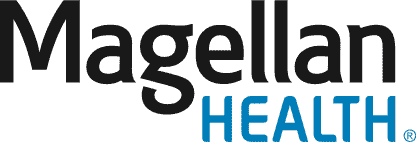We Are In-Network With Most Major Insurances





Discover the Benefits of Outpatient Rehab in Hawaii
Outpatient rehab in Hawaii is a flexible program that specializes in addressing healing and recovery while also allowing individuals to continue with their daily lives. The reality is that it is not for everyone, but for those with busy schedules (career, academics, family responsibilities), it can be ideal.
Outpatient alcohol rehab in Hawaii and outpatient drug abuse rehab are also exceptional choices for those looking to “step down” from a residential treatment plan, partial hospitalization program (PHP), or sober living facility. These may be individuals who began their journey with a medically supervised detox and inpatient care and now feel comfortable enough to transition to outpatient care or an intensive outpatient program (IOP).
The benefits of outpatient treatment at our addiction treatment center can be vast and varied. Perhaps the biggest benefit is its flexibility, but it also tends to be more affordable and more often covered by healthcare or health insurance. It also allows an individual an opportunity to more readily connect to external recovery groups in the community, such as 12-Step groups and non-12-Step group therapy options. Outpatient treatment also often allows for a smoother transition back into everyday life following detoxification, and inpatient rehab programs at our recovery center.
Balancing daily life and responsibilities with accountability, camaraderie, and continued access to treatment providers and aftercare services can help prevent relapse and facilitate a fulfilling, sober life.
Begin Your Journey Today

Our Approach to Care
Many people are under the misconception that outpatient treatment services are somehow less intensive than other levels of care, like residential treatment. This is simply not the case. The primary difference is that, in outpatient treatment, the individual has flexibility in their movements and daily routine. However, they are still required to come to the treatment facility and engage in intensive treatment modalities throughout the week. Generally, outpatient treatment plans involve a multi-angled approach that involves psychotherapeutic, experiential, and holistic treatment options to address drug addiction, alcohol addiction, behavioral health needs, and even dual diagnosis treatment.
Individual Therapy
Group Counseling
Education Sessions
Medication Management
The Importance of Continuing Care and Outpatient Rehab in Hawaii
It is important to remember that addiction recovery is about a lot more than simply putting down the drink or the drug. Recovery is about getting to the underlying reasons why that drink or drug was picked up in the first place, including learning about and managing co-occurring mental health disorders. It is only when these underlying issues are addressed that continuing care can truly work because a healthy foundation has been built for that care to stand upon. That care often includes consultations with an addictionologist at professional rehab centers, continued psychotherapy and experiential therapy, addiction coaching, and connections with recovery communities like 12-Step programs and other recovery services.
Relapse Prevention
The Role of Continuing Care in Long-Term Substance Use Recovery
Perhaps the most important aspect of continuing care for substance use disorder (SUD) is its focus on relapse prevention. After all, long-term sobriety and healthy recovery are the ultimate goals. Many people don’t realize just how common and costly relapses are in the U.S. According to the peer-reviewed thesis Addiction Relapse Prevention, by Doctors Guenzel and McChargue, their research shows that one “primary concern in addiction treatment is the high rate of relapses within a short period after even the most intensive treatment. Many studies have shown relapse rates of approximately 50% within the first 12 weeks after completion of intensive inpatient programs that often last 4 to 12 weeks or more and can cost tens of thousands of dollars.” Continuing care, overcoming drug addiction, and outpatient alcohol rehab in Hawaii can significantly lower relapse potential. Recovery is a truly transformative experience, addressing not just the symptoms of addiction but also the lifestyles, beliefs, and routines that enabled such use. Relapse prevention strategies are crucial for maintaining the hard work accomplished in detox and residential care.
Preparing for Life After Addiction Treatment With Hawaii Island Recovery
There is another traditional Hawaiian maxim that goes, “Kulia i ka nu’u,” and it means you must always strive to reach the highest peak with any endeavor. We focus on this here at Hawaii Island Recovery: striving for excellence in the care and opportunities we provide.
Begin Your Healing in Paradise
Luxury Outpatient Rehab in Hawaii
There is a traditional Hawaiian saying that goes, “No Keia La, No Keia Po, A Mau Loa.” This translates to “From this day, from this night; forever more.” It symbolizes what outpatient treatment programs and continuing care at Hawaii Island Recovery are all about. Recovery is about staying in the moment while also preparing for the future. Yes, it is about “one day at a time” and knowing that “the future is friendly.” Ultimately, alcohol and drug rehab is about both recovering and staying that way in the long term.
Embrace change in recovery!
Start Your Journey to Wellness Today
Outpatient drug treatment and continuing care are essential components of long-term, successful sobriety. They make the process more enjoyable and manageable, and help avoid relapse. For more information, please reach out to a health professional at Hawaii Island Recovery today!

